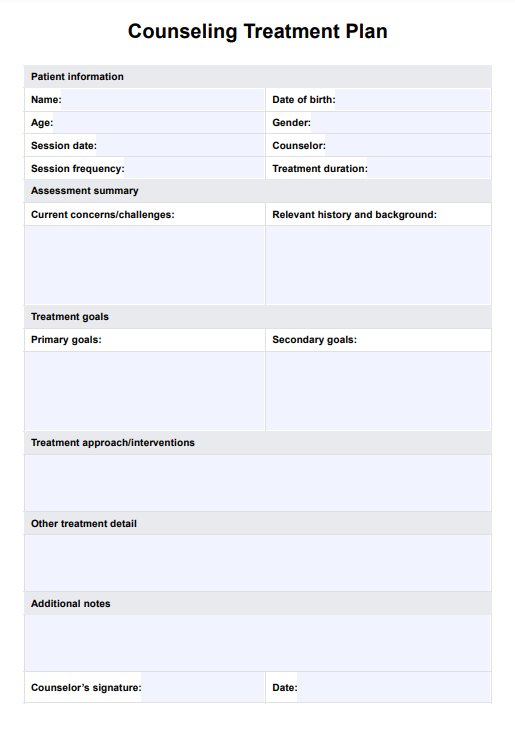A Counseling Treatment Plan is typically used when a client has specific concerns or issues they want to address through counseling and when a counselor wants to ensure they are working collaboratively with the client towards specific goals.

Counseling Treatment Plan
Access our Counseling Treatment Plan template to streamline how you document goals, strategies, and interventions for counseling.
Counseling Treatment Plan Template
Commonly asked questions
Counseling Treatment Plans are helpful because they provide a framework for evidence-based counseling practices, help to track the client's progress throughout the counseling process, and improve the overall quality of counseling services.
It is important to individualize a Counseling Treatment Plan because every client's situation is unique and requires an individualized approach. A personalized plan helps to ensure that the client's specific needs, preferences, and circumstances are taken into account throughout the counseling process.
EHR and practice management software
Get started for free
*No credit card required
Free
$0/usd
Unlimited clients
Telehealth
1GB of storage
Client portal text
Automated billing and online payments











